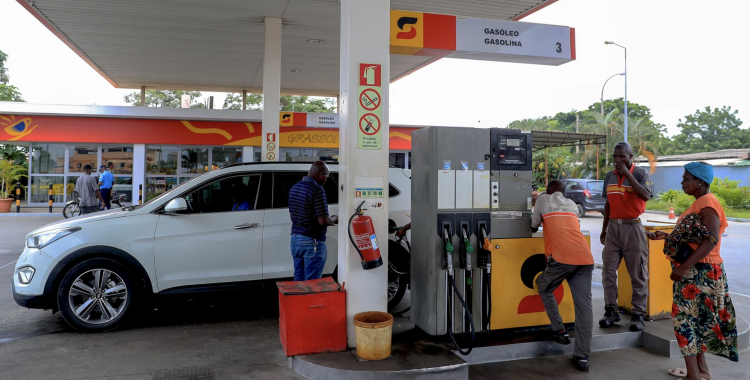One day after the price of a litre of diesel increased by 50 percent, from 200 kwanzas to 300 kwanzas, residents of Luanda expressed to Lusa their "surprise and sadness" at the authorities' decision, believing that the socio-economic difficulties of families would worsen.
They also lamented the "lack of communication and closeness" of the government towards the people, who are "crying out in hunger" given the high cost of living, and questioned the electoral promises of the current President, João Lourenço, regarding the reduction of the prices of petroleum derivatives.
"[I am] totally dismayed, we are saddened by this new reality. We woke up [Monday] with prices already at 300 kwanzas, it is a scandal, this goes back to the speech of the President of the Republic, who, at the time of his election campaign, promised that the price of fuel would go down", motorcyclist Pedro da Silva told Lusa.
Leaving a gas station on Avenida Deolinda Rodrigues, in Luanda, he questioned the reasons for the increase in the price of diesel at a time when "people are already struggling" with the high prices of consumer goods.
"The basic food basket is a scandal, people are crying out in hunger and yet the price of fuel goes up? That means the basic food basket will still triple. Is that okay, gentlemen of the government? It's sad," he said.
Pedro, 49, said he did not expect the new adjustment in the price of fuel, considering that the measure translates into a "stab in the stomach of the citizen", especially at a time when "the country is in decline" and many companies are closing.
"This is going to end up killing us, please, what is happening in this country?", he asked.
Taxi driver Pedro Francisco Luemba, who ran to the pumps to fill up his car, also expressed surprise at the new price per liter of diesel, saying that from now on he will have to spend 12,000 kwanzas compared to the previous 8000 kwanzas to fill up the tank.
At the wheel of his "blue and white" (as private taxis are known in the country), Luemba criticized the Government for the lack of prior information to citizens about the measures taken, stating that this "evil" has been dragging on for years.
"The State must talk to the people, explain what is going to happen so that the people are not surprised, now, all of a sudden, we are just scared [because] it has gone up and it is very complicated, communication does not flow", he criticized.
The taxi driver, who has been transporting passengers to various points in the capital for more than two decades, also questioned the fate of the loans that the government makes internationally, highlighting that the living conditions of Angolans "worsen year after year".
At several fuel stations in Luanda, the new price of diesel is visible, which since Monday has cost the same as gasoline (also 300 kwanzas/liter), an increase that, according to the authorities, is part of the "gradual and flexible" adjustment of retail prices.
Heidi Jamba, who is a communications manager, told Lusa that the measure will make life more expensive for Angolans, because "it is getting harder every day".
"Things tend to go up, there is constant inflation and we still haven't managed to have a stable exchange rate," she highlighted.
"Angola has good land, [but] we still haven't managed to invest in agribusiness as such, and so life will become more difficult," she lamented, also showing surprise at the decision.
On her way to work for another day of work, Osvaldina, a domestic worker, said that the rise in fuel prices "makes the difficult lives of Angolan families even worse", as they earn devalued salaries and see the daily rise in the prices of consumer goods.
"Currently in the market with 30,000 kwanzas you can't buy almost anything and everything is very complicated," she lamented.
With the rise in the price of diesel, the increase in the prices of goods and services in the country will be inevitable, said driver João Afonso Oliveira, who predicts difficult days for citizens: "And the people are the ones who will suffer," he reinforced.
Fuels in Angola are subsidized by the State, which took the political decision to gradually withdraw this subsidy, following the recommendations of the International Monetary Fund (IMF), which has been happening since 2023.







